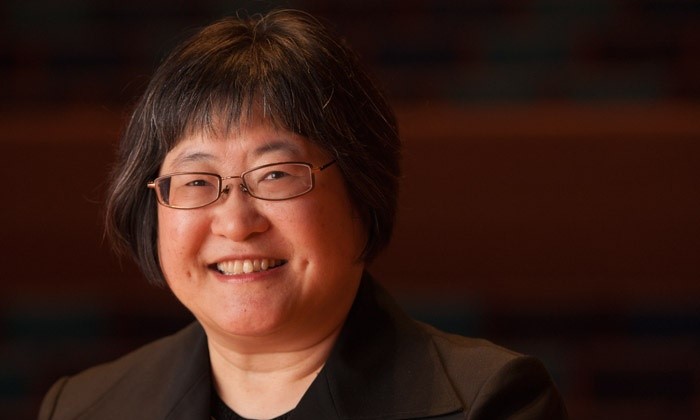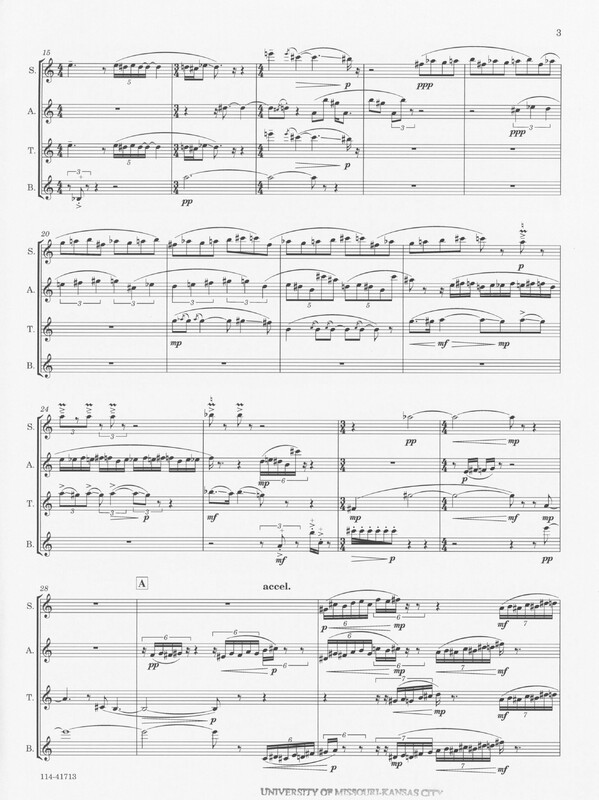Not Alone; & Happy Birthday to PRISM
Item
-
Score title
-
Not Alone; & Happy Birthday to PRISM
-
Composer
-
Chen Yi
-
Program note
-
PROGRAM NOTE BY MATTHEW LEVY, THE PRISM QUARTET
The PRISM Quartet has commissioned a great many composers since our founding days in 1984. Chen Yi is among a handful of our very favorites, and one to whom we've returned time and time again. Her music is powerful, expansive, intimate, and draws connections between Eastern and Western, ancient and modern traditions in a voice all her own.
Chen Yi has written or adapted four works for the PRISM Quartet. She penned a wonderful miniature called HAPPY BIRTHDAY TO PRISM to celebrate the ensemble's 20th anniversary back in 2004 (Dedication, Innova Recordings). We subsequently commissioned her to compose SEPTET (2008) for Erhu, Pipa, Percussion, and Saxophone Quartet (2008), premiered and recorded with the New York ensemble Music From China (Antiphony, Innova Recordings 2010). In 2015, the PRISM Quartet performed and recorded (XAS Records) a new version of her saxophone quartet concerto, BA YIN, with the University of Missouri-Kansas City Wind Ensemble under the baton of Steven Davis (originally written for the Rascher Quartet and scored for saxophones and string orchestra.).
Finally, NOT ALONE (2014) is an interdisciplinary work written for the Nai-Ni Chen Dance Company with the PRISM Quartet, but it stands alone in a chamber music setting. The work spans a stunning range of textures, from introspective solos for each of the four saxophones to majestic hyper-active gestures. The PRISM Quartet recorded NOT ALONE for a 2017 release on XAS Records titled Paradigm Lost. But we're excited for a wider community of saxophonists to embrace the work, and share it with their own audiences.
In his liner notes for the recording, WNYC's John Schaefer writes: “As with much of her music, Chen employs percussive effects and glissandi; in Chinese music these are not considered “extended techniques” or special effects, but an important part of the performer's arsenal. Here, they help create the twilit mood of the opening moments. The piece soon becomes more dramatic, suggesting the arrival of the drinker's companions (real or imagined) and his or her increasingly garrulous outbursts. Passages of consonance and discord can easily be heard as companionable singing and bouts of drunken argument. The piece bustles along on a kind of restless energy, until, finally, that restlessness subsides, giving way to a gently humorous ending where a short falling phrase signals the drinker falling asleep."
 Chen Yi
Chen Yi

